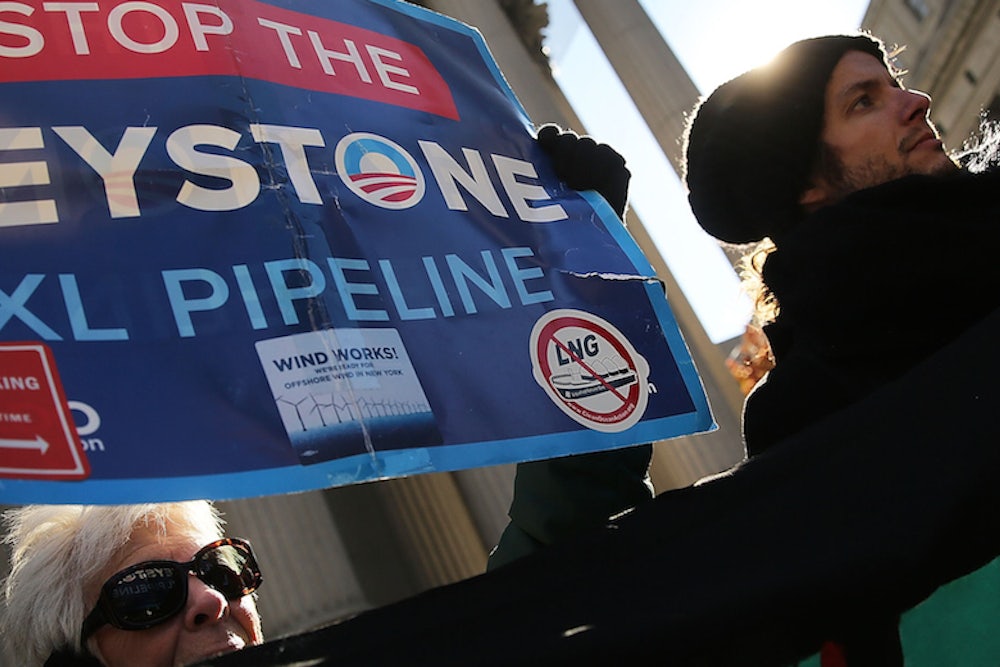TransCanada requested on Monday that the State Department suspend a decision on the 1,179-mile-long Keystone XL pipeline until a new route through Nebraska is formally approved. This request could punt a long-awaited decision to the next administration, upping the stakes of the Keystone debate in the 2016 election.
TransCanada argued that it makes sense to delay its application after the company dropped its eminent domain lawsuits against resistant Nebraska landowners in September, while requesting approval again from the Nebraska Public Service Commission—a process that could take at least another year to resolve. “In order to allow time for certainty regarding the Nebraska route, TransCanada requests that the State Department pause in its review of the Presidential Permit application for Keystone XL,” the company said in a letter addressed to Secretary of State John Kerry. “This will allow a decision on the Permit to be made later based on certainty with respect to the route of the pipeline.” When the State Department gave similar reasoning for extending Keystone's comment period last year, TransCanada CEO Russ Girling called that delay "inexplicable."
Girling has clearly changed his mind. Today, TransCanada has little to lose and everything to gain by delaying the seven-year-old application. Earlier in the day, White House spokesman Josh Earnest promised a decision on Keystone before Obama exits office. TransCanada has long expected the final word from Obama's White House to be a no, while Obama’s public comments on the matter have convinced advocates on both sides that he'd ultimately reject it.
TransCanada's preemptive move may seem like a retreat, but it could work out in the company's favor due to two factors.
The first is oil prices. Low oil prices, hovering around $50 a barrel, have delivered a blow to tar sands production in Canada. It's only a matter of when those prices begin to climb again. Canada's oil industry stands to rebound when they do, and TransCanada's interest in pipeline infrastructure will rebound as well. Alberta’s tar sands contain an estimated 1.7 trillion barrels of oil, if the oil industry figures out how to extract every last drop—and technological advances in mining make it increasingly likely that it will. Oil and gas companies need new pipelines to move all this oil, which is what makes Keystone so critical to the climate change debate. Keystone alone could move 830,000 barrels of crude oil per day at peak capacity.
The second factor is the presidential election. Environmentalists like Sierra Club executive director Michael Brune are urging the administration to dismiss the ploy. “TransCanada sees the writing on the wall, and is trying to run out the clock in hopes that the next president will not weigh climate science in his or her decision about the dirty Keystone XL tar sands pipeline,” he said. “Time is up. President Obama has all the evidence he needs to reject Keystone XL now, and we are confident that he will.” But even if Obama were to reject the pipeline, TransCanada can resubmit its application once the next president takes office. While a Democratic president would likely veto the project—Hillary Clinton recently came out against it—a Republican administration is almost certain to approve it.
In other words, the Keystone war is far from over.
